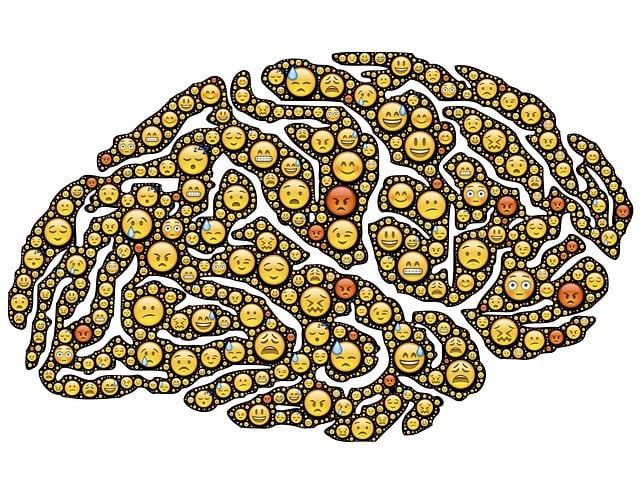Crisis intervention for elderly populations requires a sensitive approach, where Acceptance and Commitment Therapy (ACT) stands out as an effective therapy for elders. ACT equips seniors with resilience by encouraging emotional acceptance, commitment to personal values, and coping strategies for stress, anxiety, or depression. This therapy promotes social skills training, mood management, and present-moment awareness, integrating stress reduction methods to enhance overall well-being. By fostering a strong therapeutic alliance and addressing cultural barriers, ACT helps elders embrace change and live in alignment with their values, revolutionizing their perspective on life's transitions.
“In times of crisis, effective intervention can make a profound difference in an elderly individual’s life. This article guides you through essential strategies tailored specifically for crisis intervention among seniors. We explore the delicate art of understanding elder crises, leveraging evidence-based practices like Acceptance and Commitment Therapy (ACT) to enhance support. Key topics include building therapeutic alliances, practical assessment techniques, and fostering resilience. By implementing these strategies, we aim to empower professionals in delivering compassionate care and promoting recovery and well-being for elderly clients.”
- Understanding Crisis Intervention: A Sensitive Approach for Elders
- The Role of Acceptance and Commitment Therapy (ACT) in Crisis Support
- Building a Therapeutic Alliance: Gaining Elderly Clients' Trust
- Practical Strategies for Assessing and Addressing Emergency Situations
- Fostering Resilience and Hope: Moving Towards Recovery and Well-being
Understanding Crisis Intervention: A Sensitive Approach for Elders

Crisis intervention is a critical process that requires a nuanced understanding, especially when working with elderly populations. For elders, a crisis can be triggered by various factors such as health issues, loss of a loved one, or financial difficulties, and it often demands a sensitive and tailored approach. This is where Therapy for Elders, like Acceptance and Commitment Therapy (ACT), plays a pivotal role in guiding them through these challenging times.
ACT is an evidence-based practice that encourages individuals to accept their emotions and thoughts while committing to actions that align with personal values. In the context of crisis intervention, this therapy aids elders in developing coping strategies for managing stress, anxiety, or depression. By fostering social skills training and teaching effective mood management techniques, ACT empowers them to navigate crises with resilience. Additionally, incorporating stress reduction methods can significantly enhance their overall well-being during and after the intervention process.
The Role of Acceptance and Commitment Therapy (ACT) in Crisis Support

Acceptance and Commitment Therapy (ACT) plays a significant role in crisis support for elders, offering a unique approach to help individuals navigate challenging situations while cultivating resilience. This therapy encourages clients to accept their experiences rather than fighting or avoiding them, which is particularly beneficial during crises. By fostering awareness of the present moment, ACT aids in breaking down the mental barriers that can exacerbate stress and anxiety.
The focus on values-based action within ACT empowers elders to set goals aligned with their personal priorities, promoting a sense of purpose despite adversity. This therapeutic method also facilitates the development of coping skills, enhancing an individual’s ability to handle future crises effectively. Moreover, integrating ACT into mental health education programs for older adults can mitigate burnout among caregivers and support staff by teaching them techniques to manage stress and maintain emotional well-being.
Building a Therapeutic Alliance: Gaining Elderly Clients' Trust

Building a strong therapeutic alliance is essential when working with elderly clients, as it forms the foundation for successful therapy and can enhance their overall mental wellness. Gaining their trust is crucial in this process. Many older adults may be hesitant to engage in therapy due to cultural barriers, previous negative experiences, or a general lack of familiarity with modern therapeutic approaches. Therefore, a compassionate and patient attitude is key. Therapists should take the time to understand the client’s perspective, respect their autonomy, and ensure confidentiality to foster trust.
Acceptance and Commitment Therapy (ACT) offers valuable tools to create this alliance. ACT encourages self-awareness exercises and acceptance of difficult emotions, which can be particularly beneficial for elderly clients facing age-related challenges. By participating in mental wellness coaching programs that incorporate stress management techniques, individuals can learn to navigate life’s transitions with greater ease. This therapeutic approach can revolutionize their perspective, helping them to embrace change and live more fully aligned with their values.
Practical Strategies for Assessing and Addressing Emergency Situations

In crisis intervention, assessing and addressing emergency situations requires a multifaceted approach, especially when focusing on therapy for elders. Acceptance and Commitment Therapy (ACT) offers valuable tools to navigate these challenging scenarios. By encouraging individuals to accept their emotions and commit to valued actions, ACT fosters resilience in older adults facing acute distress. This therapy promotes self-care practices, such as mindfulness and cognitive reframing, enabling seniors to cope with intense feelings effectively.
Practical strategies include establishing a safe environment, employing effective communication techniques, and tailoring interventions to individual needs. Communication strategies, like active listening and clear, empathetic expression, help build trust and facilitate the emotional healing processes. By integrating these approaches, crisis interventionists can provide tailored support, ensuring older adults receive the care they need during emergency situations, promoting their overall well-being and quality of life.
Fostering Resilience and Hope: Moving Towards Recovery and Well-being

Fostering resilience and hope is a cornerstone of crisis intervention strategies. By integrating evidence-based approaches like Acceptance and Commitment Therapy (ACT), elders can develop a deeper sense of purpose and meaning, strengthening their ability to navigate life’s challenges. This therapy encourages individuals to accept their experiences without judgment, fostering flexibility in thinking and behaviour. In turn, this promotes a shift from struggling against difficult emotions to observing them with greater clarity, enabling elders to take targeted actions that align with their values.
Beyond crisis intervention, prioritizing self-care routine development for better mental health is indispensable. Encourage regular physical activity, mindfulness practices, and social connections to combat the onset of depression prevention and anxiety relief. These strategies not only support immediate recovery but also contribute to long-term well-being. By embracing these approaches holistically, elders can move towards a more fulfilling and resilient future.
Crisis intervention strategies, especially those grounded in Therapy for Elders like Acceptance and Commitment Therapy (ACT), play a pivotal role in empowering elderly individuals to navigate challenging situations. By building a strong therapeutic alliance and employing practical assessment techniques, professionals can foster resilience and hope. This holistic approach ensures that elders not only address immediate crises but also work towards long-term recovery and improved well-being.














